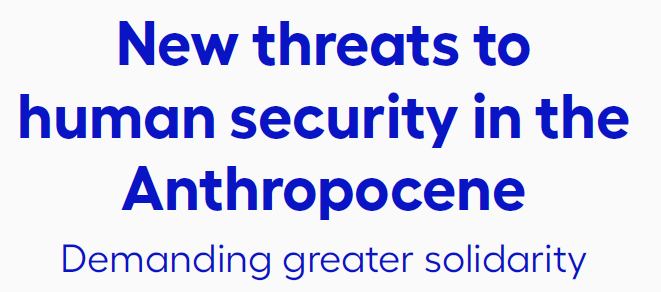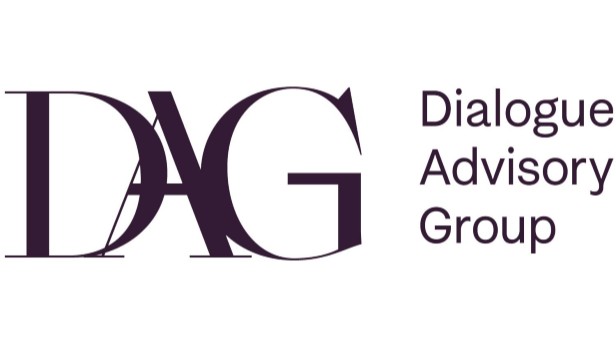The New Threats to Human Security in the Anthropocene report points out that public perception of safety and security is low worldwide despite years of development success. Groups benefiting from some of the highest health, wealth, and education outcomes present more significant anxiety than ten years ago. To cover this disconnection between development and security, “greater solidarity across borders and a new approach to development, allowing people to live free from want, fear, anxiety and indignity” is needed.
Part 1
In Part 1, the report revisits the concept of Human Security. Further, it gives a brief account of the human security concept’s origins, achievements, and challenges. Later on, it covers a cluster of shifting threats that have become more prominent in recent years. These include “digital technologies, inequalities, conflicts, and the ability of healthcare systems to tackle new challenges like the COVID-19 pandemic.”
According to the report, to address these threats, policymakers will require to consider protection, empowerment, and solidarity together. Otherwise, human security, planetary considerations and human development will not work together correctly. In other words, solutions for one problem shouldn’t exacerbate other issues.
It notes the strong association between declining levels of trust and feelings of insecurity. Higher levels of perceived human insecurity make people three times less likely to find others trustworthy. Therefore, the promotion of agency as a social imperative is necessary to achieve change.
Part 2
In Part 2, the report goes deeper into the new generation of threats to human security. For example, digital technologies can expand human freedoms, but they can also have unintended consequences that endanger human security. Chapter 3 explores some of the threats posed by digital technologies. Firstly, it discusses how common cybersecurity attacks and new technological tools can affect it.
Then, it explores the risk of human rights being compromised as part of the response to cyber harm. Also, it covers how increasing reliance on artificial intelligence (AI) algorithms may erode human security. Finally, it investigates how unequal access to technology affects human security.
Chapter 4 focuses on the study of conflict among people, not disputes. Building on widely accepted definitions of conflict, it extends the analysis to examine complex threats to human security. It shows how a new approach based on protection, empowerment and solidarity can support the establishment of just and peaceful societies.
Chapter 5 studies the persistence of inequalities in human development and discrimination and its direct impact on dignity. They have destabilizing consequences globally and direct and practical effects on human development. Therefore, it delves into the different experiences of horizontal inequalities linked to overlapping identities. In this sense, it describes the importance of seeing human beings as agents, not victims, by analyzing how different social groups experience challenges to human security.
Chapter 6 explores the gap between health threats and the capacity of health systems to cope with them. The report introduces a new Health Care Universality Index (HCUI) based on a broad concept of universality. Includes adequate coverage, generosity and equity. The chapter then discusses the uneven recovery after COVID-19. But, more important, it highlights the opportunity to create a new generation of human security through universality.
Other new findings:
- Conflict levels are currently rising, with some 1.2 billion people living in conflict-affected areas; 560 million reside in countries not classified as fragile contexts.
- Highly developed countries tend to capitalize on the benefits and suffer less of the consequences, highlighting how climate change is deepening inequalities.
- Traditional ideas about vulnerable countries to the conflict should be revisited. About 1.2 billion people live in conflict-affected areas. Almost half of them (560 million) are in countries not usually considered fragile.
- In 2021, global life expectancy declined for the second year. It was dropping by about one and a half years on average compared to a pre-COVID world.
- There are significant gaps in healthcare systems between countries with low and very high human development. According to the report’s new Healthcare Universalism Index, between 1995 and 2017, the inequality in healthcare performance worsened.
Conclusion
To sum up, The New Threats to Human Security in the Anthropocene report makes a solid case of how crucial it is to “move away from fragmented efforts to jointly address climate change, biodiversity loss, conflict, migration and refugees, pandemics and data protection.” Systematic, ongoing and universal attention to solidarity as a call to pursue human security must become an ethical imperative.
To download the report, click here.



